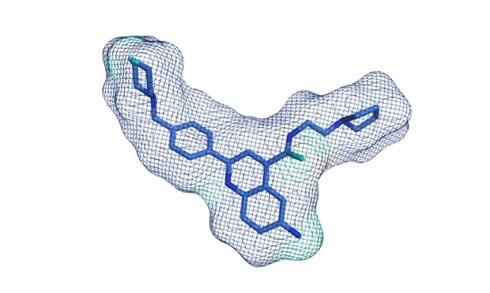
Top stories


Marketing & MediaWarner Bros. was “nice to have” but not at any price, says Netflix
Karabo Ledwaba 1 day



Logistics & TransportMaersk reroutes sailings around Africa amid Red Sea constraints
Louise Rasmussen 19 hours

More news


















The details of the discovery, properties and mechanism of action of the compound, DDD10749, were published this week in the journal Nature.
"The publication describes the discovery and profiling of this exciting new compound," said Professor Ian Gilbert, Head of Chemistry at the Drug Discovery Unit, who led the team that discovered the compound. "It reveals that the compound has the potential to treat malaria with a single dose, prevent the spread of malaria from infected people and protect a person from developing the disease in the first place.
"There is still some way to go before the compound can be given to patients. However we are very excited by the progress that we have made."
The World Health Organisation reports 200 million clinical cases of malaria in 2013, with 584,000 people dying from the disease. Most of these deaths were children under the age of five and pregnant women.
"Malaria continues to threaten almost half of the world's population, the half that can least afford it," said Dr David Reddy, MMV's CEO. "This is an exciting compound since it holds the promise to not only treat but also protect these vulnerable populations. The collaboration to identify and progress the compound, led by the Drug Discovery Unit at the University of Dundee, drew on MMV's network of scientists from Melbourne to San Diego. The publication of the research is an important step and a clear testament to the power of partnership."
Dr Kevin Read, joint leader of the project, also based at the Drug Discovery Unit at Dundee, said, "New drugs are urgently needed to treat malaria, as resistance to the current gold-standard antimalarial drug is now considered a real threat. The compound we have discovered works in a different way to all other antimalarial medicines on the market or in clinical development, which means that it has great potential to work against current drug-resistant parasites. It targets part of the machinery that makes proteins within the parasite that causes malaria."
"The need for new antimalarial drugs is more urgent than ever before, with emerging strains of the parasite now showing resistance against the best available drugs," said Dr Michael Chew from the Wellcome Trust, which provides funding for the Dundee DDU and MMV. "These strains are already present at the Myanmar-Indian border and it is a race against time to stop resistance spreading to the most vulnerable populations in Africa. The discovery of this new antimalarial agent, which has shown remarkable potency against multiple stages of the malaria lifecycle, is an exciting prospect in the hunt for viable new treatments."
"Our partnership with MMV was critical to the progress of this compound," added Gilbert. "Dr Paul Willis at MMV and Sir Simon Campbell, a mentor from MMV's Expert Scientific Advisory Committee, gave invaluable input to the project. We have extensively profiled the compound, investigating its properties to understand how it works; this could not have been done without MMV's scientific input and support of its network of partners around the world."
The University of Dundee team has been working with MMV since 2009 to identify potential new treatments for malaria. The project was initiated by testing a collection of around 4,700 compounds at the University of Dundee Drug Discovery Unit to see if any would kill the malaria parasite. From this screening, the chemical starting point was identified and then optimised through cycles of design, preparation and testing, by a team of chemists and biologists.
In October 2013, MMV selected DDD498 to enter preclinical development following the recommendation of its Expert Scientific Advisory Committee. Since then, with MMV's leadership, large quantities of the compound have been produced and it is undergoing further safety testing with a view to entering human clinical trials within the next year.
In a critical next step in the progression of DDD107498, Merck Serono has recently obtained the right to develop and, if successful, commercialise the compound, with the input of MMV's expertise in the field of malaria drug development and access and delivery in malaria-endemic countries.
For more information, go to www.mmv.org.